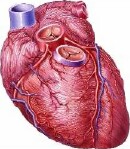- Could Artificial Sweeteners Be Aging the Brain Faster?
- Techniques for Soothing Your Nervous System
- Does the Water in Your House Smell Funny? Here’s Why
- Can a Daily Dose of Apple Cider Vinegar Actually Aid Weight Loss?
- 6 Health Beverages That Can Actually Spike Your Blood Sugar
- Treatment Options for Social Anxiety Disorder
- Understanding the Connection Between Anxiety and Depression
- How Daily Prunes Can Influence Cholesterol and Inflammation
- When to Take B12 for Better Absorption and Energy
- Epsom Salts: Health Benefits and Uses
Cholesterol Drugs May Boost Outcomes After Bypass


A new study suggests that the widely used anti-cholesterol drugs known as statins may have another benefit: Cutting the odds for death in the weeks and months after heart bypass surgery.
Use of a statin — especially the drug Zocor — was linked to a 65 percent to 74 percent lower risk of death following coronary artery bypass graft surgery. Bypass is performed for patients suffering from severely clogged or narrowed arteries, and is designed to re-route blood flow around such blockages.
The study was led by Robert Sanders, an assistant professor of anesthesiology at the University of Wisconsin, Madison. His team of U.S. and U.K. researchers noted that the vast majority of heart surgery patients included in the analysis — roughly 85 percent — were already routinely taking a statin before their heart surgery.
“The unknown is why the other 15 percent were not on statins,” Sanders said. Some may have had an intolerance to the medications or adverse effects, while others might simply not have been offered the cholesterol drug by their physicians, he noted.
The new study was based on data involving more than 16,000 British heart surgery patients. All were at least 40 years old at the time they underwent coronary bypass graft surgery, and the researchers tracked outcomes at one month and six months after bypass.
Apart from statins, many of the patients had been taking a broad range of other types of heart medicines prior to the surgery. For example, nearly three-quarters were taking beta-blockers, more than 60 percent were taking the heart drugs called ACE inhibitors, and nearly 45 percent were taking calcium channel blockers.
However, after conducting five statistical analyses, Sander’s team found that only the use of statins was tied with a “significant protective effect” in reducing a patient’s post-operative risk for death. This finding held up even after the researchers factored out each patient’s prior history of other chronic illnesses.
One type of statin — simvastatin (Zocor) — was tied to the most significant drop in post-operative death risk, about a 77 percent decline. Sander’s team said more research is needed before it can say whether other types of statins might have similar effects.
And Sanders added that while “it is reasonable to assume that all these [bypass] patients would benefit from statin therapy,” the question remains whether the remaining 15 percent would benefit from short-term statin therapy around the time of their operation.
Dr. Gregg Fonarow, a professor of cardiology at the University of California, Los Angeles, agreed with Sanders that the current findings will have to be confirmed by further research.
“It would require a randomized clinical trial to demonstrate that this early, associated benefit with statin therapy represents a cause-and-effect relationship,” he said.
“However, as it is already recommended that patients diagnosed with coronary artery disease — including those undergoing coronary artery bypass grafting — should be treated with statin therapy irrespectively, these findings further reinforce current guideline recommendations,” Fonarow added.
The study was scheduled to be presented Sunday in Berlin at the Euroanaesthesia 2015 meeting. Experts note that findings presented at medical meetings are typically considered preliminary until published in a peer-reviewed journal.
More information
There’s more on statins at the U.S. National Institutes of Health.
Source: HealthDay
Copyright © 2026 HealthDay. All rights reserved.










